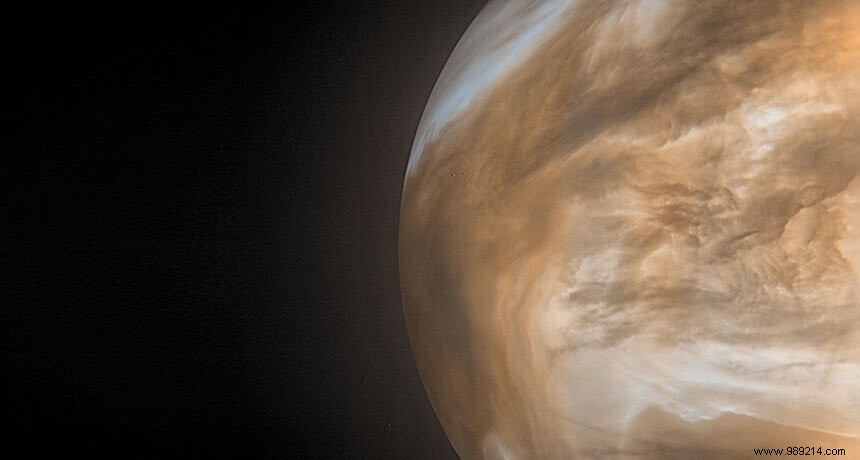Advanced simulations reveal that young Venus's clouds formed mainly on its night side, blocking sunlight reflection and preventing the planet from ever cooling enough for liquid water—essential for life as we know it.
Months ago, scientists detected phosphine in Venus's atmosphere at 35-50 km altitude, where conditions mimic Earth's, sparking life debates. A follow-up study identified it as sulfur dioxide instead.
A recent Nature paper reinforces this: Venusian clouds, despite moderate temperatures, lack sufficient water for life. But what of the surface billions of years ago?
Today, Venus is infernal—its bone-dry surface melts lead under crushing pressure. Some experts once proposed that early Venus, under a Sun just 70% as bright, cooled via reflective clouds to host surface oceans.
Yet, new Nature research led by Dr. Martin Turbet from Geneva's Astronomical Observatory flips this narrative. Their sophisticated model shows clouds confined to Venus's night side (the hemisphere facing away from the Sun, as Venus isn't tidally locked).

These clouds didn't reflect sunlight; instead, they trapped heat through a greenhouse effect. Thus, Venus never cooled enough for stable liquid water. “If the authors are right, Venus has always been hell,” note astronomers James Kasting (Penn State) and Chester Harmer (NASA Ames).
Upcoming missions will probe Venus's surface, potentially validating these insights.